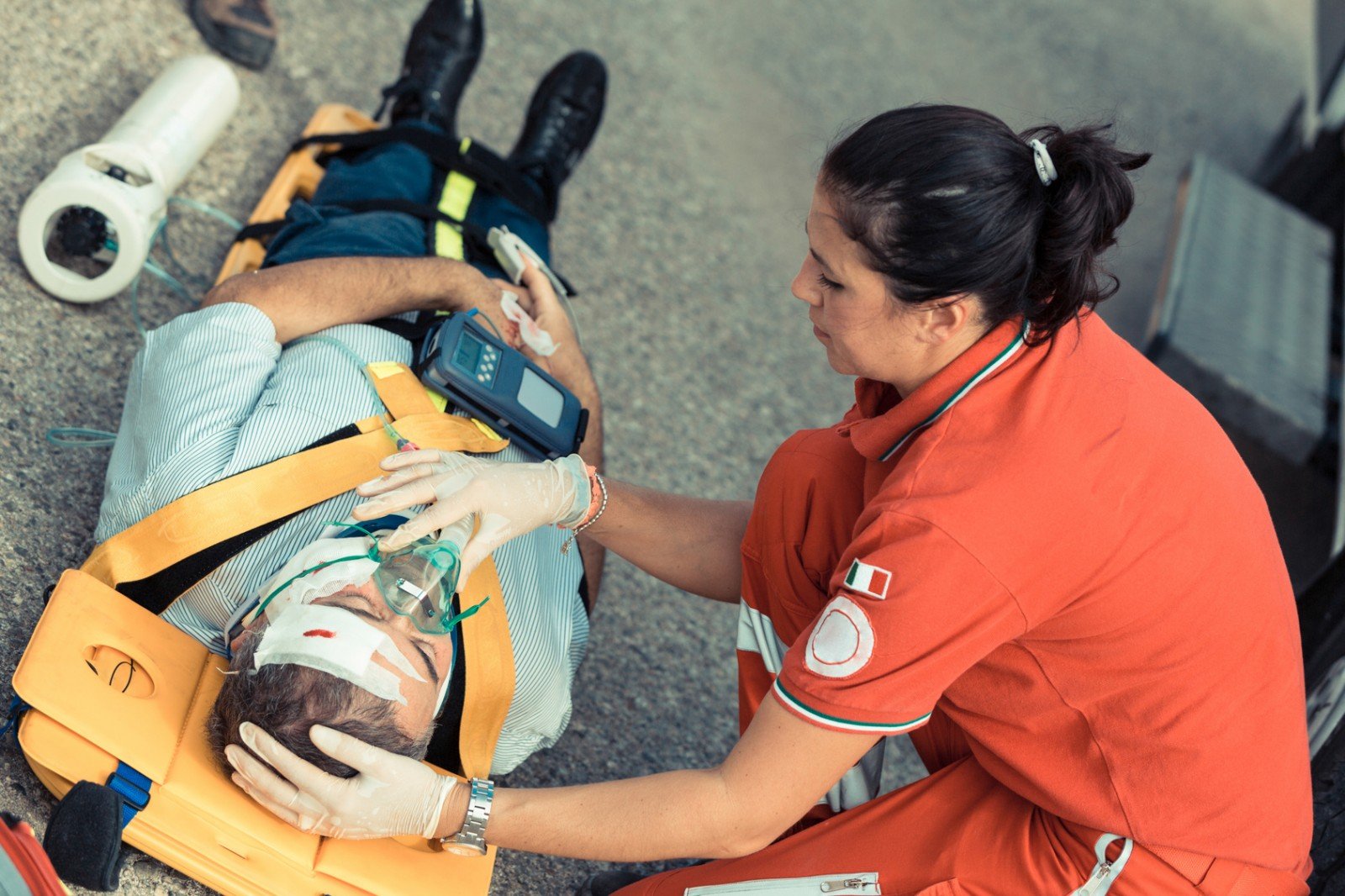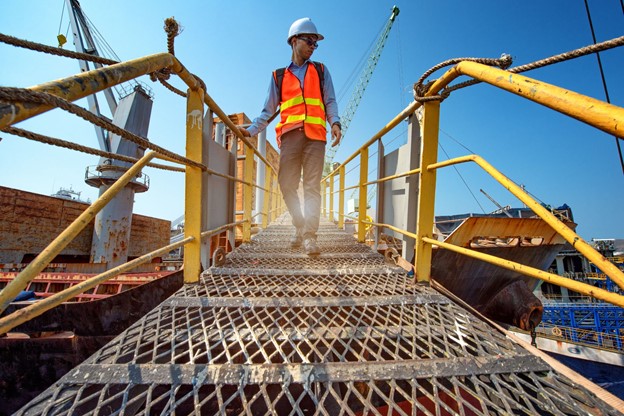
Blog
The Dangers of Falling/Moving Objects on Ships and Vessels
Posted in General, Jones Act, News
Working on a ship, vessel, or rig has its own potential risks and dangers for accidents, injury, or wrongful death. Most types of accidents can be prevented with the proper safety training, equipment, gear, and education. One of the more frequent types of accidents workers experience is caused from being struck by moving or falling objects on board.
How Common Are Falling Object Accidents?

- An object dropped 64 feet hits the ground in 3 seconds at 43.8 mph.
- An object dropped 106 feet hits the ground in 3 seconds at 65.8 mph.
- A 2-ounce object dropped 230 feet can pierce a hardhat.
What Causes Falling Object Injuries?
Most falling object accidents are preventable, and it is the duty of shipowners and management to properly train maritime workers to avoid these common causes:
- Failing to follow occupational safety procedures, by operating faulty hoists, cranes, or other equipment, failing to secure loose tools, and placing objects too close to the edge of a platform
- Unseen defects in ropes, rigging, decks, or platforms allowing workers to be stuck by a falling object without warning
- Improper training for crew members to prevent accidents, or insufficient safety equipment to protect those on deck or in compartments with openings on deck
- Lack of supervision and enforcement of safety procedures on board
Preventing Falling Object Accidents at Sea
Wear High-Visibility Clothing – Make sure others can see you and know you are in a work area where they might be moving objects overhead or on deck.
- Wear Safety Helmets/Gear/Apparel – Make sure to wear hard hats and other safety gear in dangerous work areas. If you are working at elevated levels, remember to use fall prevention safety harnesses.
- Be Aware of Slip, Trip, and Fall Hazards – The deck can be slippery from water, oil, and other residue. Make sure to wear non-slip footwear for better grip, along with proper toe protection to protect your feet from being struck by a falling object.
- Know the Path/Movement of Overhead Swings and Hooks – Before moving objects using an overhead swing or hook, make sure you know their path and whether they could place people underneath where they might be injured.
- Never Enter Work Areas While Objects Are Being Moved – During the movement of overhead objects, stay out of work areas below. If you must be in the work area below, be sure to make eye contact with equipment operators.
- Keep Doors, Lockers, and Stowage Compartments Closed – To prevent loose objects from moving freely about, securely shut and verify latches are in the closed position.
- Never Work Alone – Work with a spotter, make sure to let others know where you intend to work, what you will be doing, and use a radio for communications.
- Inspect All Areas – Tools and equipment used to lift objects and machinery could throw or fling parts into areas where they could hit someone.
- Use Common Sense – Avoid throwing tools and objects to other workers on the ship and only operate equipment you have been trained to use safely.
By using the above tips and enforcing the best safety practices on your ship, vessel, or rig, you can help reduce the chances you or a coworker will be injured by a falling object. Avoiding the Fatal Four types of accidents identified by OSHA helps construction companies and vessels at sea keep their employees safe from serious injuries and the associated pain and suffering. The other categories that cause the most fatal accidents to workers are falls, electrocution, and being caught between objects.3
Maritime Personal Injury Attorneys Help Injured Maritime Workers
Accidents that cause serious injuries at sea, on a drilling platform, or on an oil rig may fall under state law, federal law, or maritime law, depending on where they occur and the status of the employee. Navigating these waters to find full and fair compensation for your injuries may require the help of experienced maritime accident attorneys.
Medical bills, lost wages, and loss of earning potential are just a few of the reasons to know your rights if you have been injured in the maritime industry. If you have sustained injuries from moving or falling objects, you can visit the law offices of Schechter, Shaffer & Harris to learn more about your legal options. No other law firm has more dedication to supporting and protecting the rights of maritime workers nationwide. Contact the Jones Act attorneys at Maintenance and Cure by phoning 800-836-5830 now.
Sources:
 Wear High-Visibility Clothing – Make sure others can see you and know you are in a work area where they might be moving objects overhead or on deck.
Wear High-Visibility Clothing – Make sure others can see you and know you are in a work area where they might be moving objects overhead or on deck.












